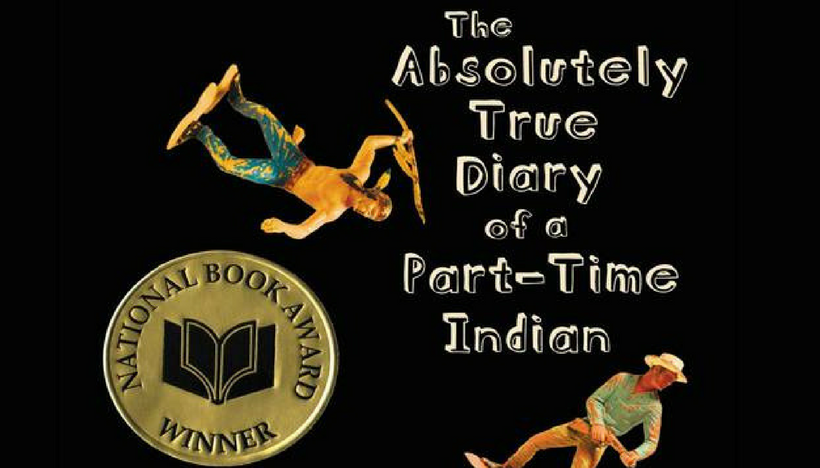I just finished reading—actually listening to Sherman Alexie read—You Don’t Have to Say You Love Me: A Memoir. Not a YA book like The Absolutely True Diary of a Part-Time Indian, the memoir is an in-your face reminder of many of the events and themes that pervade Diary, themes and events that challengers of Diary call out and object to.
The National Book Award winning The Absolutely True Diary of a Part-Time Indian was THE most challenged book in the nation in 2014 and the mention of the novel on a school reading list today still elicits challenges from those who have heard about it but maybe not read it or read it well, as Alexie notes:
Here at NCTE, the Intellectual Freedom Center defends several Diary challenges a year—fortunately fewer than one a month in 2014—and still it’s a book we’re proud to defend.
But the more that we defend books like Diary, the more I think that maybe we educators would better argue with the reasons why our students should read the book rather than rebuttals to the challenge.
Kathryn Campbell, the Intellectual Freedom Chair for the Minnesota Council of Teachers of English, recently wrote on their behalf to ask the the New London-Spicer School District to keep Diary in its curriculum. After giving all the regular reasons to teach the book—the awards won, recommendations, value for students of a certain age, and curricula developed around the book—Kathryn speaks from her heart as a parent and teacher, calling forth the core of what educators do:
“…As a mother, I can say that my own daughter was introduced to Alexie’s novel by her 8th grade teacher, then later read Leslie Marmon Silko’s Ceremony as a sophomore, and Sherman Alexie’s Flight in a junior/senior elective. Having the foundation of The Absolutely True Diary of a Part-Time Indian in middle school was central to her developing understanding of Native American culture, reservation life, and poverty. On a personal level, I appreciated the opportunities we had for conversations in our family about how Junior is candid and offensive in ways that provoke thinking and empathy; about how he uses humor to cope with grief; and about how the book made my child think through issues she would never experience. To this day, now as an adult, she talks about this novel as a cornerstone of her education, and her middle school copy still resides on her bookshelf…
“Reading Alexie’s book, with the guidance of thoughtful and qualified English teachers, provides students with one more tool that helps in the tremendous journey of growing up. It introduces them to behaviors, speech patterns, ways of seeing the world, ethics, and principles — some of which align with their values and culture, some of which are vastly different — and invites them to reflect on self-knowledge and unpack difference.
“That’s the kind of real world, critical thinking we want offered to all our students. Please defend the inclusion of Alexie’s novel in the 8th grade curriculum and empower your teachers to continue to use this incredible text in the classroom.”


